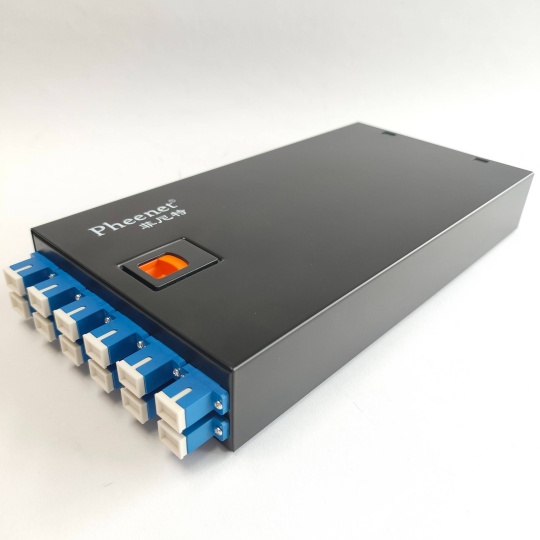How to choose industrial cable for high-humidity warehouses
High-humidity warehouses—such as those for food processing, pharmaceutical storage, or coastal logistics—pose unique risks to industrial cables, including insulation degradation, conductor corrosion, and short circuits. Selecting the right cable is not just about ensuring operational continuity; it also prevents costly downtime and safety hazards. Below is a practical, step-by-step guide to help you make an informed choice, along with key factors to prioritize and pitfalls to avoid.
1. Key Performance Factors to Prioritize
Not all industrial cables are designed for moisture resistance. Focus on these four non-negotiable attributes to ensure durability in high-humidity environments:
- Insulation Material: Opt for materials with strong moisture barrier properties. Cross-linked polyethylene (XLPE) and ethylene propylene diene monomer (EPDM) are top choices—XLPE resists water absorption and maintains electrical insulation even when exposed to condensation, while EPDM offers excellent resistance to humidity, aging, and mild chemicals (common in food or pharmaceutical warehouses). Avoid standard PVC insulation, as it can become brittle and leak current over time in persistent moisture.
- Protective Sheathing: The outer sheath acts as the first line of defense against moisture and physical damage. Choose waterproof sheaths made of chlorinated polyethylene (CPE) or thermoplastic polyurethane (TPU); these materials repel water, resist mold growth, and withstand abrasion from warehouse equipment (e.g., forklifts). For extra protection in damp, dusty areas, select sheaths with anti-microbial additives to prevent fungus buildup.
- Conductor Material & Coating: Bare copper conductors are prone to corrosion in high humidity. Instead, use tinned copper conductors—the tin coating creates a barrier against moisture and oxidation, extending the cable’s lifespan. For heavy-duty applications (e.g., powering large refrigeration units), consider stranded conductors over solid ones; they are more flexible and less likely to crack under temperature fluctuations (a common issue in humid spaces with cooling systems).
- Industry Certifications: Verify that the cable meets global standards for moisture resistance. Look for certifications like UL 1581 (for electrical performance in wet conditions), IEC 60502 (for power cables in harsh environments), or NFPA 70 (National Electrical Code) compliance for fire safety—critical in warehouses where moisture can increase fire risks from electrical faults.
2. A Practical 4-Step Selection Process
To avoid overcomplicating the choice, follow this straightforward process tailored to high-humidity warehouses:
- Assess Your Environment First: Document key conditions to narrow down options. Note the average humidity level (e.g., 75%+ for tropical warehouses vs. 60-70% for refrigerated spaces), temperature range (e.g., 0°C to 30°C), and presence of contaminants (e.g., water splashes, chemical vapors, or dust). For example, a seafood warehouse with frequent water exposure will need a cable with a more robust waterproof sheath than a dry-goods warehouse with just high ambient humidity.
- Define the Cable’s Purpose: Clarify if the cable is for power transmission (e.g., connecting motors), control signals (e.g., monitoring inventory systems), or data transfer (e.g., IoT sensors). Power cables need thicker insulation and higher current ratings, while control/data cables require shielded designs to prevent moisture from disrupting signals.
- Cross-Check with Installation Requirements: Consider how and where the cable will be installed. If it will be buried in damp concrete or run along wet floors, choose a cable with armor protection (e.g., steel tape or wire armor) to resist physical damage and water seepage. For overhead installation, select a lightweight, UV-resistant sheath (if exposed to natural light) to avoid degradation.
- Evaluate Long-Term Maintenance: Opt for cables that are easy to inspect and maintain. For example, cables with transparent or color-coded sheaths let you spot early signs of moisture damage (e.g., discoloration or swelling) without stripping the insulation. Avoid cables with complex, hard-to-repair designs—this reduces maintenance time and costs over the cable’s lifecycle.
3. Common Pitfalls to Avoid
Even with careful planning, many buyers make mistakes that compromise cable performance:
- Ignoring temperature-humidity interaction: High humidity combined with extreme temperatures (e.g., cold refrigerators or hot machinery) can 加速 insulation breakdown. Always choose cables rated for the full temperature range of your warehouse, not just humidity.
- Prioritizing cost over quality: Cheap, non-moisture-resistant cables may save money upfront, but they often fail within 1-2 years in high-humidity settings—leading to expensive replacements and downtime. Investing in a quality cable can extend lifespan to 5-10 years.
- Overlooking shielding for control/data cables: Moisture can interfere with electrical signals, causing errors in inventory tracking or equipment control. Always use shielded cables (e.g., foil or braided shielding) for control and data applications in damp environments.
Conclusion
Choosing industrial cables for high-humidity warehouses requires balancing moisture resistance, durability, and application needs. By focusing on insulation, sheathing, conductor quality, and certifications—and following a structured selection process—you can minimize risks and ensure long-term reliability.
For businesses seeking cables tailored to high-humidity challenges, FRS brand factory delivers solutions engineered for these exact conditions. FRS industrial cables use premium XLPE/EPDM insulation, tinned copper conductors, and waterproof CPE/TPU sheaths, all certified to UL 1581 and IEC 60502 standards. Whether you need power cables for refrigerated warehouses or shielded control cables for coastal facilities, FRS offers customized designs to match your environment and application—backed by technical support to help you select the right product and avoid costly mistakes. Trust FRS to keep your high-humidity warehouse operations running smoothly, safely, and efficiently.











